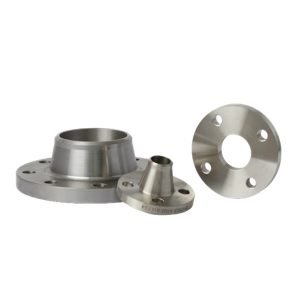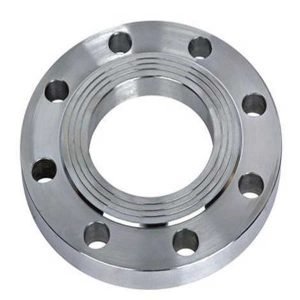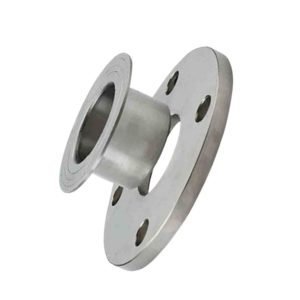ASME (American Society of Mechanical Engineers) flanges are critical components in countless industrial piping systems, ensuring secure and leak-free connections. The integrity and longevity of these systems hinge significantly on the judicious selection of flange materials. Adhering to standards like ASME B16.5, manufacturers utilize a diverse array of metals, each chosen for its unique mechanical and environmental performance characteristics. Whether the application involves extreme pressures, corrosive media, or high temperatures, the right material choice is paramount for operational reliability and extended service life.
The Indispensable Role of Material Specification in Flange Performance
The efficacy of ASME flanges is inextricably linked to their material composition. Every application presents a distinct set of demands, ranging from tensile strength and temperature resilience to comprehensive corrosion protection. Overlooking these specific requirements and opting for suboptimal materials can precipitate a cascade of detrimental outcomes, including system failures, escalating maintenance expenditures, and significant safety hazards.
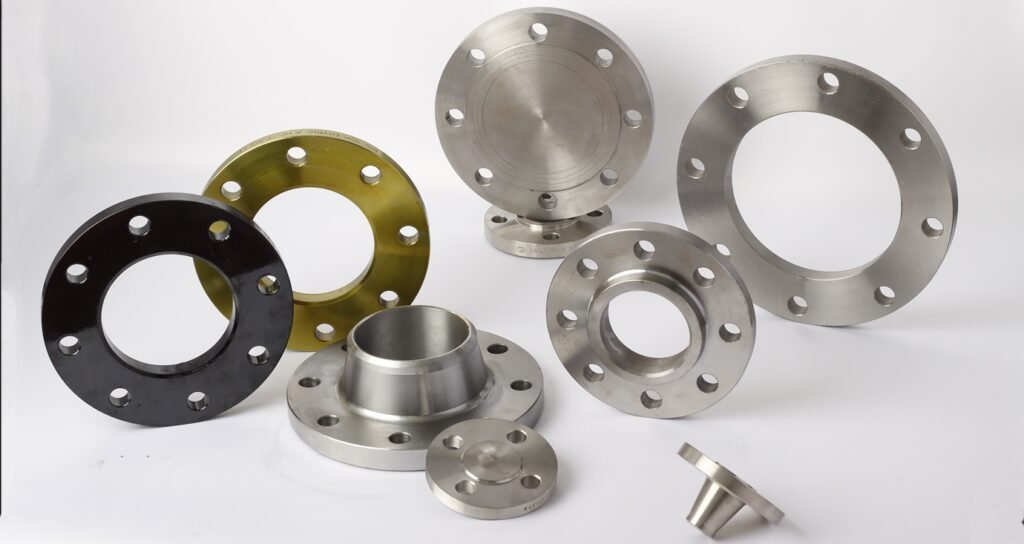
Key Determinants in Flange Material Selection:
Pressure Rating: The material must possess the inherent capacity to endure the precise operating pressures of the system. Exceeding a material’s pressure tolerance can lead to compromised seals, leaks, or even catastrophic structural failures. For high-pressure applications, alloy steels or duplex stainless steels are frequently the materials of choice.
Operating Temperature: Flange materials must exhibit steadfast structural integrity and strength even under constant thermal cycling or sustained high temperatures. An ill-suited material can result in deformation, loss of sealing efficacy, or complete connection failure
Corrosion Resistance: In environments rich in chemical agents, saltwater, or other aggressive substances, corrosion poses a direct and substantial threat to both safety and durability. Stainless steels and nickel alloys offer superior protection against such corrosive attacks.
Prominent Materials Employed in ASME Flanges
Carbon Steel Flanges (ASTM A105, A350)
Among the most prevalent ASME flange materials, carbon steel is celebrated for its exceptional strength-to-cost ratio. Grades such as ASTM A105 (forged carbon steel) and ASTM A350 (carbon and low-alloy steel for low-temperature service) are ideally suited for ambient and elevated temperature applications, respectively. These materials also offer broad compatibility with ANSI and DIN flange standards in numerous piping configurations.
Stainless Steel Flanges (Grades 304, 316)
Stainless steel, particularly grades 304 and 316, provides outstanding corrosion resistance, making them indispensable in industries such as food processing, chemical manufacturing, and offshore oil & gas. These ASME flange materials are renowned for their exceptional performance in harsh and demanding environments
Alloy Steel Flanges (ASTM A182 Grades F11, F22)
Alloy steel flanges, exemplified by grades F11 and F22 (characterized by low chromium content), are meticulously engineered for demanding high-pressure and high-temperature services. They are widely utilized in power generation plants and the oil & gas sector. Their superior mechanical properties render them an exceptionally reliable option for the most arduous operating conditions.
Duplex and Super Duplex Stainless Steels
These advanced ASME flange materials strike an optimal balance between high strength and superior corrosion resistance, demonstrating enhanced durability, particularly in marine and subsea environments. Super duplex grades are frequently specified for their extended service life in environments rich in chlorides, where conventional stainless steels might falter.
Nickel Alloys (Inconel, Monel)
Recognized for their extraordinary resistance to both extreme heat and severe corrosion, nickel alloys such as Inconel and Monel are the preferred choice for specialized chemical processing and ultra-high-temperature systems.
Other Specialized Materials (Titanium, Copper-Nickel)
Materials like titanium and copper-nickel are employed when highly specialized properties are required to address unique challenges in sectors such as aerospace, desalination, and critical marine engineering applications.
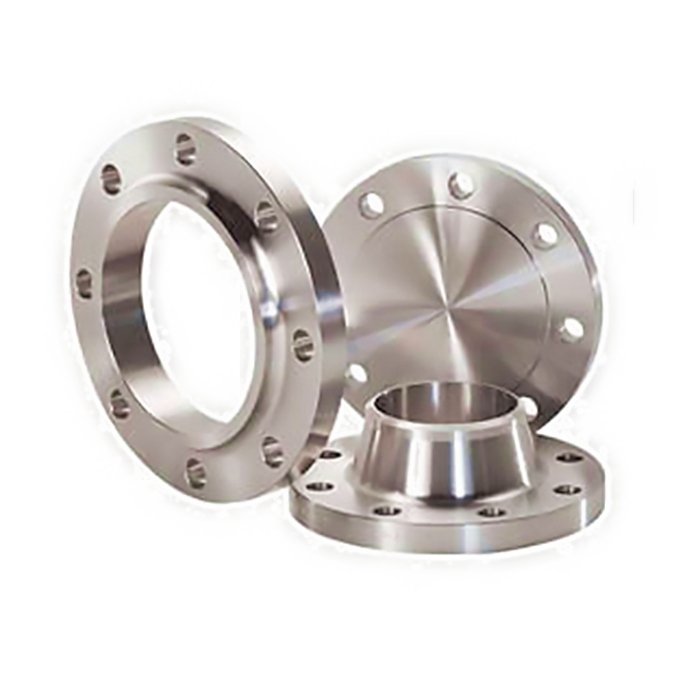
Industry-Specific Applications Based on Material Type
- Oil & Gas: Robust ASME flange materials like alloy and carbon steel are extensively used in exploration, extraction, and refining operations due to their high strength and impressive pressure ratings.
- Chemical Processing: This industry frequently mandates stainless steel and nickel alloy flanges to withstand aggressive chemicals effectively micals and significant temperature fluctuations.
- Marine & Offshore: In corrosive saltwater environments, super duplex and copper-nickel materials are highly favored for their unparalleled resistance to chloride-induced corrosion and biofouling.
- Power Generation: High-temperature-resistant materials, specifically F11 and F22 alloy steels, are indispensable in steam and gas turbine systems where the capabilities of basic carbon steel are insufficient.
Practical Advice for Engineers and Buyers:
Thorough Environmental Assessment: Always gain a comprehensive understanding of the operating environment before finalizing your selection of ASME flange materials.
Prioritize Corrosion Resistance: In chemical processing and marine settings, robust corrosion resistance should be a paramount consideration
Ensure Compatibility: Verify material compatibility with other prevailing standards, such as DIN or ANSI flanges, to ensure seamless integration.
Navigating Cost vs. Performance Trade-Offs:
While certain advanced materials deliver exceptional performance, their initial cost can be significantly higher. Engineers are tasked with the crucial responsibility of balancing stringent performance requirements with pragmatic budget constraints to arrive at the most cost-effective and functionally appropriate solution.
Advantage of Partnering with a Reliable Flange Supplier
Material selection extends beyond mere technical specifications; it fundamentally relies on trust and expertise. Collaborating with a reputable supplier ensures access to certified ASME flange materials meticulously tailored to your project’s specific demands. Whether your project calls for standard carbon steel flanges, advanced stainless steel options, high-performance alloy flanges, or highly corrosion-resistant duplex flanges, an experienced team can provide invaluable guidance throughout the selection process.
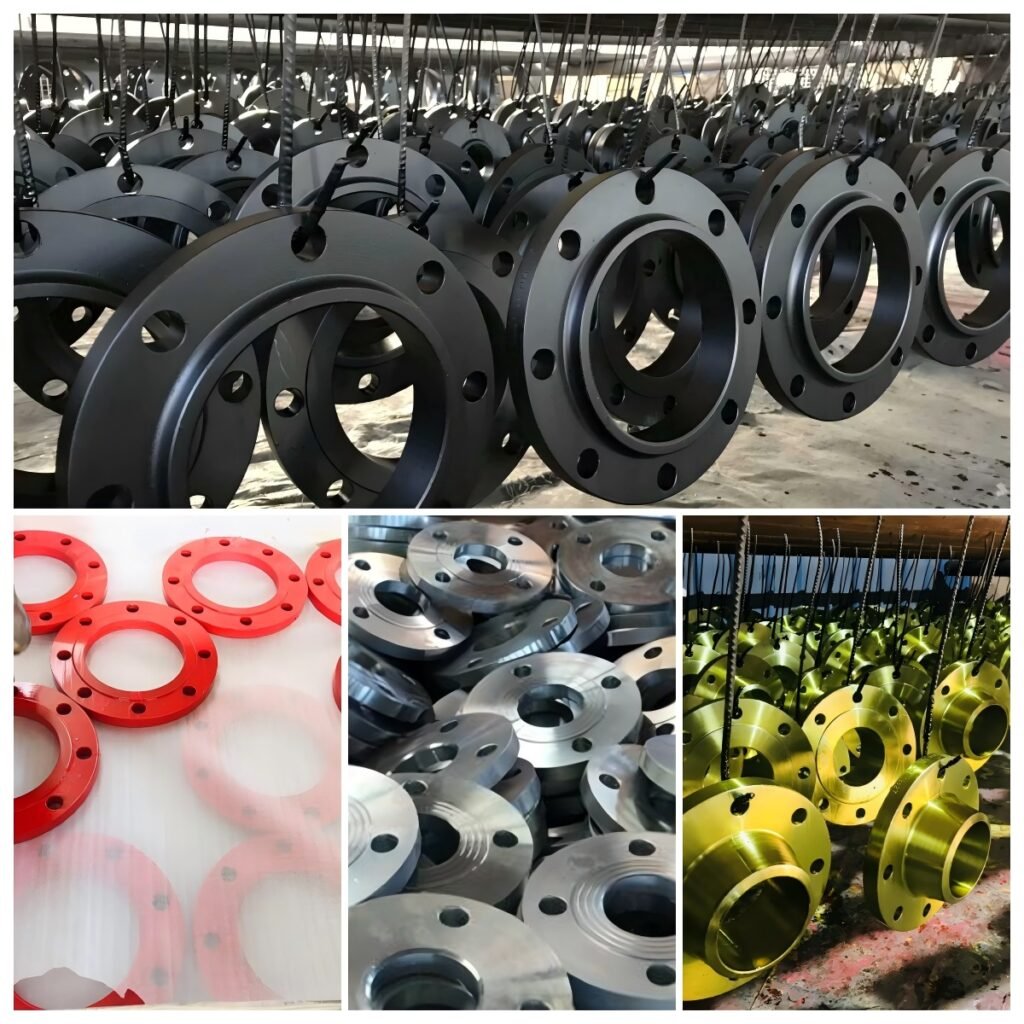
Discover the comprehensive ASME flange catalog and connect with our seasoned engineering experts for personalized recommendations that elevate your project’s success.
Contact Rayoung today for unparalleled expert support and secure the optimal materials for your critical piping systems.
Tel/WhatsApp: +86-18003119682
Email: info@hb-steel.com

